Climate
-
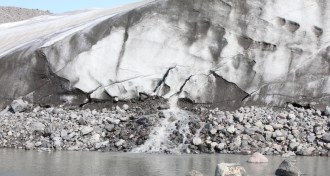 Climate
ClimateGlacial microbes gobble methane
While some bacteria produce methane in Greenland’s melting ice sheet, others may consume the greenhouse gas as it escapes.
By Beth Mole -

-
 Climate
ClimateReef fish act drunk in carbon dioxide–rich ocean waters
In first test in the wild, fish near reefs that bubble with CO2 lose fear of predators’ scent.
By Meghan Rosen -
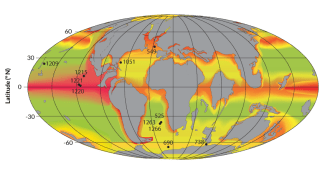 Climate
ClimateOcean bacteria may have shut off ancient global warming
Ocean-dwelling bacteria may have helped end global warming 56 million years ago by gobbling up carbon from the CO2-laden atmosphere.
-
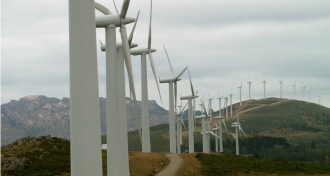 Climate
ClimateIPCC calls for swift switch to alternative power
Rapid adoption of green power production will be necessary to avert a climate crisis, latest IPCC report says.
By Beth Mole -
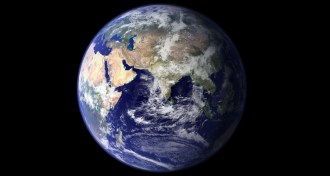 Climate
ClimateWorld unprepared for changing climate, IPCC says
The latest intergovernmental report says planetwide impacts continue.
-
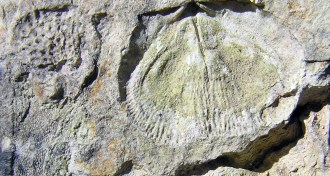 Paleontology
PaleontologyMicrobes indicted in ancient mass extinction
About 252 million years ago an estimated 96 percent of all species were wiped from Earth, and now scientists have a new suspect in the killing — methane-belching microbes.
-
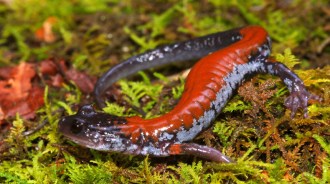 Animals
AnimalsAs their homes warm, salamanders shrink
Many species of salamanders respond to climate change by getting smaller.
-
 Climate
ClimateNatural climate shifts affect sea level rise
A recent dip in the rate of sea level rise may be due to natural climate variability.
-
 Climate
ClimateKangaroo gut microbes make eco-friendly farts
Understanding kangaroos’ low-methane flatulence could help researchers lower greenhouse gas emissions from livestock.
By Beth Mole -
 Climate
ClimateClimate change may spread Lyme disease
The territory of the ticks that transmit Lyme disease is growing as the climate warms.
By Beth Mole -
 Earth
EarthHow the Chicxulub impact made acid rain
Using lasers to accelerate materials to asteroid-like impact velocities, scientists have shown how the Chicxulub asteroid impact, which happened roughly 65 million years ago, could have created a mass extinction in the oceans.